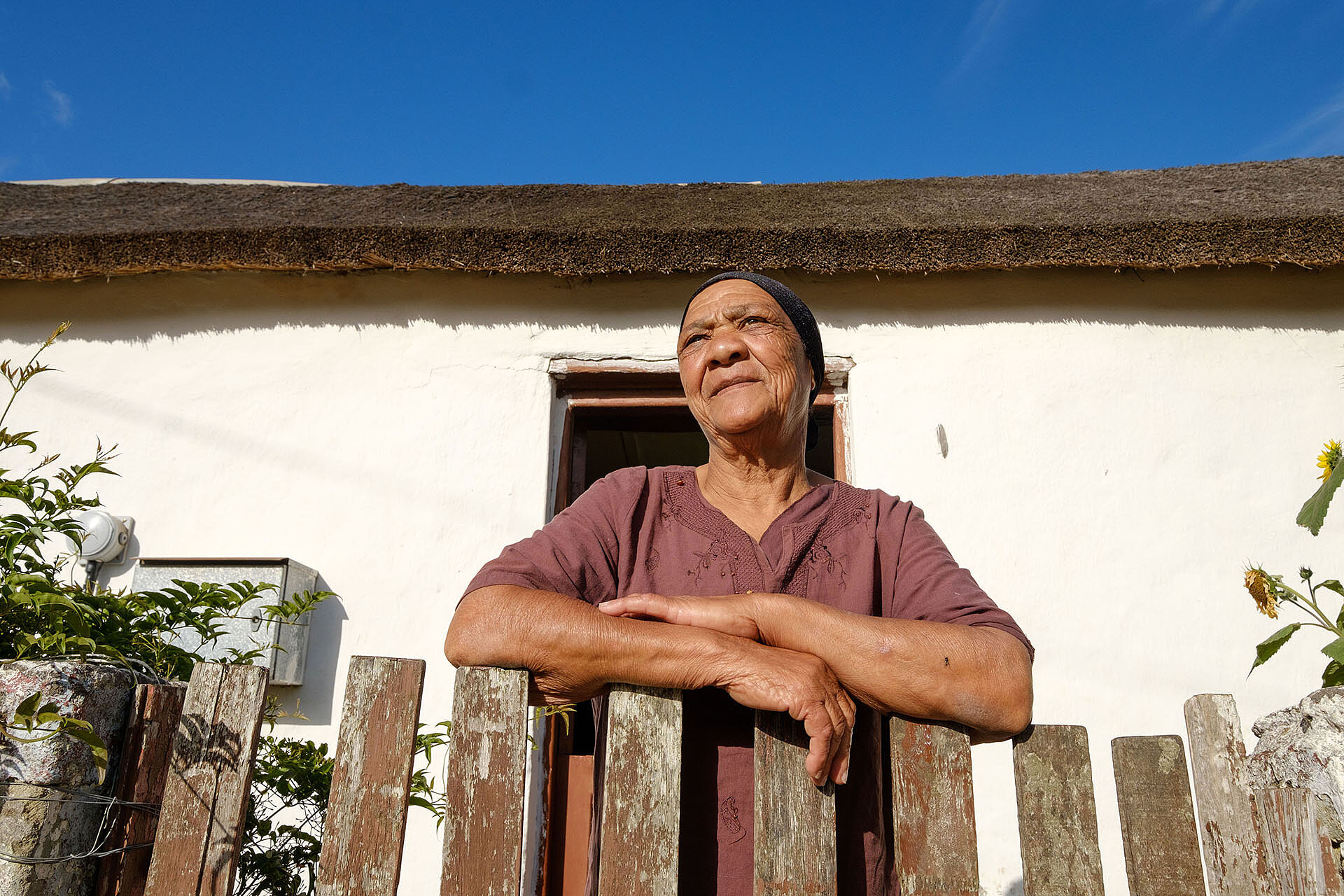Tuesday, 14. January 2025
Series: Death and Eternal Life
Insights from Ghana and South Africa

The five-part series “Death and Eternal Life” (read here) offered fascinating insights into the funeral customs of the global EMS Fellowship. Rebecca Abladey from Ghana and Buyiswa Sambane and Anda Nkosi from South Africa, members of the International Women's Network of the EMS, now shed light on how traditional role models and rules of behaviour influence the way death and mourning are dealt with. It is often women in particular who are disadvantaged and discriminated against by certain social expectations.
Do women in Ghana deal with death differently than men? A Ghanaian proverb says “Berima nsu” (in English: “A man does not cry”). Society expects men to be strong, to remain stoic and to keep their feelings to themselves. Women in Ghana are also expected to behave in a certain socially acceptable way when faced with bereavement. There are special, culturally determined mourning rituals for widows which they must adhere to. Adherence to these widowhood rituals is in the hands of special women who also usually act as undertakers.
It is not uncommon for widows to be subjected to traditional rituals that make them even more depressed and frustrated after the loss of their husband (see also page 9). These rituals are usually performed by the family of the deceased husband with the consent of the widow's family. On the other hand, widowers are not affected by such cultural rules. Widowers are often encouraged to remarry – unlike widows, who often remain alone for reasons of child rearing or because they are too deeply hurt and traumatised emotionally.
The Presbyterian Church of Ghana (PCG) offers counselling and advice to grieving families. There are also special programmes to provide widows with financial support. This boosts their self-esteem and enables them to live self-determined, independent lives.
Insights from South Africa
In South Africa, women's experiences of death and mourning also differ significantly from those of men. In rural areas in particular, women are encouraged to show their grief publicly. They are not only expected to feel the pain but also to be ‘seen’ feeling it.
Buyiswa Sambane, a member of the women's network from South Africa, recalls, “I was at home with my mother and my cousin when we found out about my father's death. My mother took the sad news very calmly. But she was afraid the villagers would say they hadn't heard her lament for her husband's death. So she started crying out loud because that's what was expected of her. Men are not expected to do that; they are supposed to be strong and calm.” Their traditional role as providers and protectors forces men to suppress their emotions – even when a family member dies.
The way we were raised influences our behaviour and our reaction to death. It is not uncommon for people to be judged for how they express or fail to express their grief. The different ways in which men and women deal with death are largely determined by family, community, societal norms and expectations. These tend to be restrictive for women and liberal for men. In any case, the death of a loved one is a deeply moving experience for both genders.
Rebecca Abladey (Ghana), Buyiswa Sambane (Südafrika), Anda Nkosi (Südafrika)
Members of the EMS Women's Network